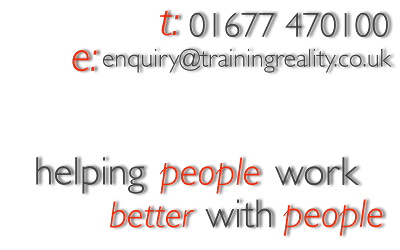Please press (at least!) one of these.
It costs you nothing, and (possibly) helps us spread the word!
Optimism, pessimism and reality - Part 1
Monday, 10 August 2009
Are you a glass half full, glass half empty, or “who’s round is it next” type of person? And what are your views of others’ positions on this and the effect it has on their lives?
Broadly speaking, each of the three positions is defended thus:
1) The pessimist is either expecting the worst “because it always happens”, as psychological preparation in case the worst does happen, or because from that position, any surprise outcomes will only be nice surprises, not bad ones.
2) The optimist expects the good thing anyway, and, at best, will shrug off any other result, operating under the belief that a positive outlook will help to create the positive outcome itself, therefore generating more positive things than would otherwise occur.
3) The rationalist, believing themselves to be bedded in reality, sees both positions as unrealistic, and would view themselves as a person who weighs everything up and comes to a rational, logical expectation of the impending result.
As with most differing maps of the world, there are strong supporting arguments in favour of each, and indeed against the others, and the first challenge we all face is to be able to see these things from different people’s perspectives. But seeing as the “glass half full/empty” phrase is such common currency, it’s worth exploring the implications for ourselves, as individuals, or the choices we make.
The primary question to ask when interpreting your behaviours is to find out “what is it doing for me?” By an honest analysis of the answer(s) to this question, it’s possible to begin to see the implications of your behaviour. To take a personal example:
Cold calling - and my pessimist’s view
This is something I’ve always been loath to do, partly because it’s something I personally hate being on the receiving end of, and partly because of my pessimist’s view that it’ll go badly anyway, so what’s the point. Looking at the implications of this, there are quite a few important things that appear.
Firstly, I’m guilty of imposing my map of the world onto others. Just because I find cold calls irritating, doesn’t mean that others do. It’s also a very simplistic belief - thinking about it further, there is a world of difference between calling a private individual about a new credit card, and calling a professional business person about a management training service you can offer that you genuinely believe will help them and their team perform better.
Secondly, the pessimist’s view can stop me making the calls altogether. Obviously, if I don’t make the calls, I don’t get either the rejection or the feeling of guilt for having wasted someone’s time, but I also miss out on a potential sale. By understanding this, the potential trade off becomes clearer - how much potential guilt or rejection am I willing to absorb in order to achieve a sale?
Thirdly, The point above demonstrates that I have a tendency to see a rejection of a cold sales call as a rather personal thing...the use of the word rejection, for me, is pretty personal. How can I reframe this so that an unsuccessful call can have less negative personal impact?
Fourthly, when I do pick up the phone to make that call, does my expectation about the likely outcome have any effect on my direct behaviour? I would like to think not, but equally, if I were to record myself making a cold call versus making a call to an existing management training client with whom I have a good relationship, I’m sure I would spot a difference!
--
The next entry in this blog will continue the subject of optimism, pessimism and reality, and look at the implications of optimism. If you have other thoughts, ideas or experiences, please share them via the comment box below.
Please press (at least!) one of these.
It costs you nothing, and (possibly) helps us spread the word!





